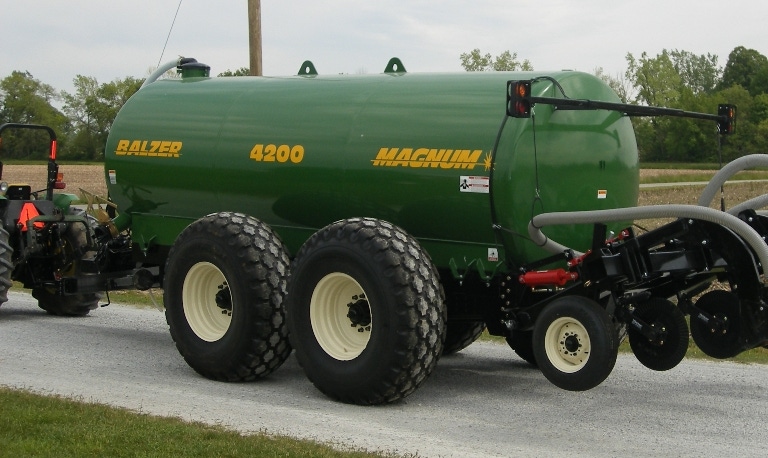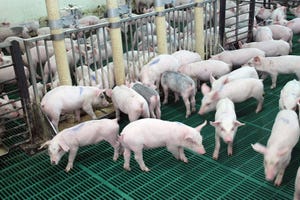Manure hauling regulations vary by state and there are some agricultural exemptions but, generally speaking, the maximum weight limit on most roads is 80,000 lb. gross vehicle weight (GVW), equivalent to a five-axle semi tractor and trailer. Are these rigs legal?
March 15, 2012

The recently concluded multi-state manure tanker study focused on design, weights and roads, but avoided the 40-ton gorilla in the room — are these rigs legal?
Regulations vary by state and there are some agricultural exemptions but, generally speaking, the maximum weight limit on most roads is 80,000 lb. gross vehicle weight (GVW), equivalent to a five-axle semi tractor and trailer.
Wisconsin’s livestock community got a wakeup call last fall when a county sheriff stopped a manure hauler for a combined tractor/tanker GVW that topped 130,000 lb. Three of the manure hauling units in the Professional Nutrient Applicators Association of Wisconsin study topped the 80,000-lb. mark when loaded; one scaled 134,200 lb. Several others would have exceeded Department of Transportation (DOT) weight limits as well, since allowable weight is based on the number of axles and axle spacing. While few in law enforcement have yet made it an issue, the bottom line is that weight regulations, like rural roads, haven’t kept pace with equipment design. Many 250-plus hp tractors alone top the 80,000-lb. mark.
“A lot of farmers have the perception that, with the exception of their trucks, they are exempt from DOT requirements,” says Lieutenant Mike Klingenberg of the Wisconsin State Patrol. He notes that the confusion, at least in his state, stems partly from the fact that some specialized farm equipment, including truck-mounted manure tankers, don’t need to be licensed. These rigs are, however, still subject to all the other DOT regulations, such as those pertaining to weight, maintenance, lighting, tires, inspections, etc.
There are also visibility requirements that pertain to agricultural equipment, multi-vehicle “train” restrictions, potential limits on time of day and days of week movement of some equipment and more. While law enforcement has usually not pursued agricultural equipment violations, except in the case of obvious safety issues, don’t get lulled into a false sense of security. Klingenberg advises producers to know and follow the laws in their states.
“I’ll tell you who will know the rules if you don’t,” he cautions. “It will be the lawyer of the person who gets in an accident with your equipment. If you are in violation of weight limits or any other regulations, you are vulnerable… and may not even have insurance coverage. Read the small print in your policies.”
— Bill Gnatzig
You May Also Like



